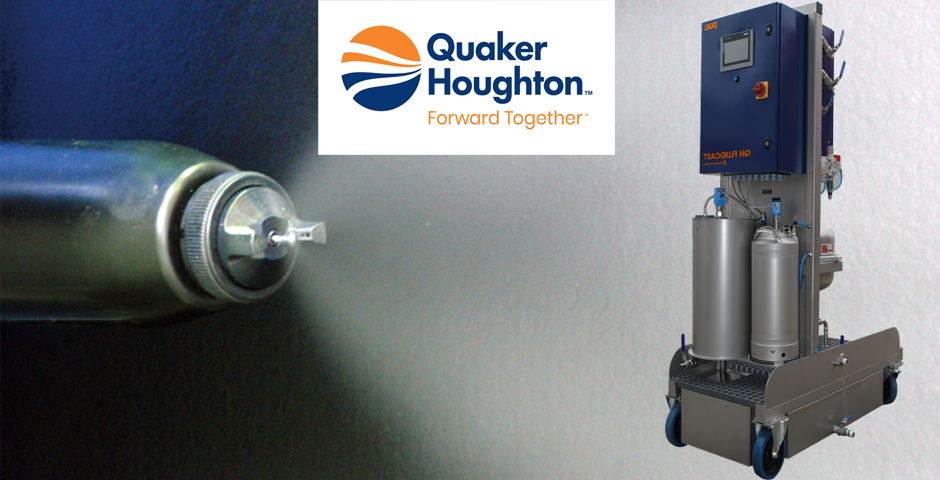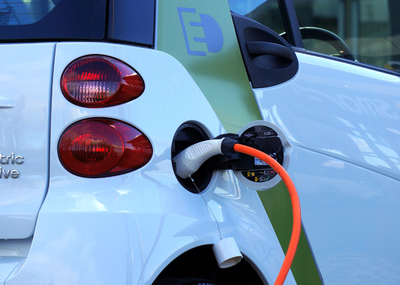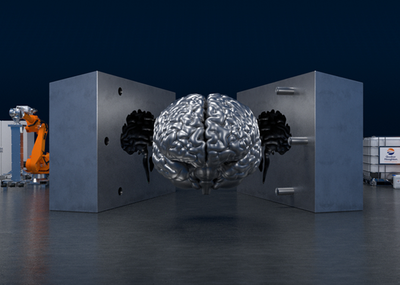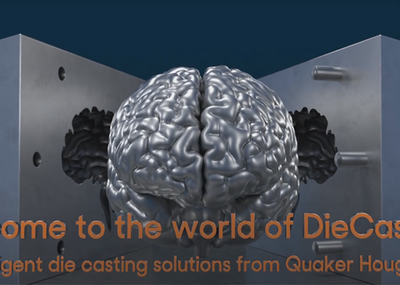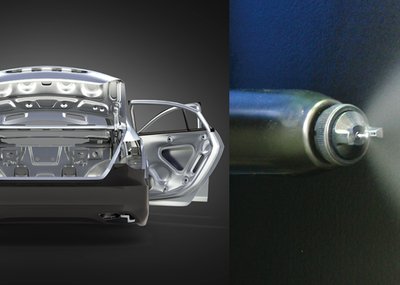However, manufacturers often struggle to achieve this. So, what are the challenges, and how can we best solve them to safeguard quality and maximise performance? Here, Dr Mark Cross, Global Business Development Director – Die Casting at Quaker Houghton considers the issues.
Die release agents, or die lubricants, are essential to die casting, and to meet industry’s many different application needs a wide range of solutions have been developed. These include water based, water based MQL (Minimum Quantity Lubrication), water free (oil based) MQL, and water free electrostatic.
Optimised to be applied accurately and in consistent quantities, each can actively enhance both process efficiency and the quality of components. Controlled and repeatable application is essential to achieve optimum performance, and when working with water-based products, accurate and consistent dilution also needs to be factored in. If not optimised in these ways, this can lead to a number of potential challenges including porosity, staining and soldering, where components stick to the die. This can compromise product quality in the short-term, and if these aren’t resolved there can be a knock-on effect down the line - whether that’s production inefficiency, reduced service life or, in a worse-case scenario, equipment downtime.
So, what are the barriers to consistent, accurate and repeatable application of the lubricant?
The causes of inconsistency - water-based agents
For water-based agents specifically, mixing and bacteria can present significant challenges. Most water-based die lubricants are purchased in concentrated form, then mixed to the desired concentration. Poor control of dilution concentration will lead to inconsistencies in the process.
For this type of lubricant, it’s common to use large central stores of diluted lubricant to feed the casting lines, which inevitably lead to fungal and bacterial growth which left unchecked can clog lines, affect flow rates and pose both process problems and potential health hazards. While this can be treated with heavily regulated biocides, it adds an additional layer of complexity.
For both water-based and other lubricants however, the key barrier to the consistent, repeatable delivery of die lubricant dosing is inadequate or incorrectly specified equipment which fails to offer the required level of controlled lubricant dilution and/or spray volume.
A case for universal consistency
Accuracy, repeatability, consistency: these are what matter in the application of die lubricants. Only then can constant flow rates, volumes and pressures be achieved, ensuring the desired result, regardless of the number of machines used, or the scale of the wider operation.
All of this places emphasis on the quality of the spray delivery equipment – itself a complex and multifaceted part of the overall process.
Equipped for the task
Each lubricant has different properties. Equally, each application is unique. The solution therefore needs to be fully customised to each challenge.
One obvious way to build quality assurance into even the most intricate parts of the die casting process is to invest in equipment which accurately mixes concentrated die lubricants to pre-determined levels, and delivers consistent, repeatable quantities to the die face.
Clearly, there are a multiple range of requirements, from operations with mixed schedules that require agile or mobile solutions through to fixed central systems capable of supporting various lines. Equally, while some operations require water-based agents, others involve the new generation of water free (oil based) Minimum Quantity Lubrication (MQLs), or even hybrid systems.
Technology exists to meet these varied needs, including Quaker Houghton’s FLUIDCAST™ range, which is designed to deliver on demand, eliminating the need for large central stores of lubricants and, as a result, the risk of bacterial/fungal contamination. With the addition of FLUIDCAST™ E-STATIC, the range also accommodates water free electrostatic lubricants and can be further enhanced by plunger technology – such as the PLA 100 system, which delivers neat, oil and water-based lubricants to extremely high tolerances, minimising risk, improving part quality and enhancing plunger tip life.
But whatever the configuration of equipment and delivery system, there’s one area where both meet to deliver exceptional advantage - and that’s digital.
Digitalisation – the future for fluids
The arrival of Industry 4.0 has changed manufacturing for ever, giving even greater control and data and putting users firmly in command of their operations. Digital has obvious application in the die-casting industry, helping automate complex functions at the same time as using sensors and other technologies (including thermal cameras to identify hotspots for example) to monitor performance and efficiency.
By gathering live, real-world information from equipment and relaying instructions back to the hardware it enables system managers to fine-tune improvements on live die casting lines, while also gathering actionable insights which enable businesses to use lubricants and die casting fluids more effectively. By optimising the use of time, labour and resources, the benefits include improved processes, productivity and machine performance, along with reduced cost, cycle times and downtime.
The next EUROGUSS will be held in Nuremberg from 8 to 10 June 2022.
For all details please go to: www.euroguss.de
Interested in more NF-Lightmetal and die casting related information?
Please check out Event-Connector for EUROGUSS 2022.

